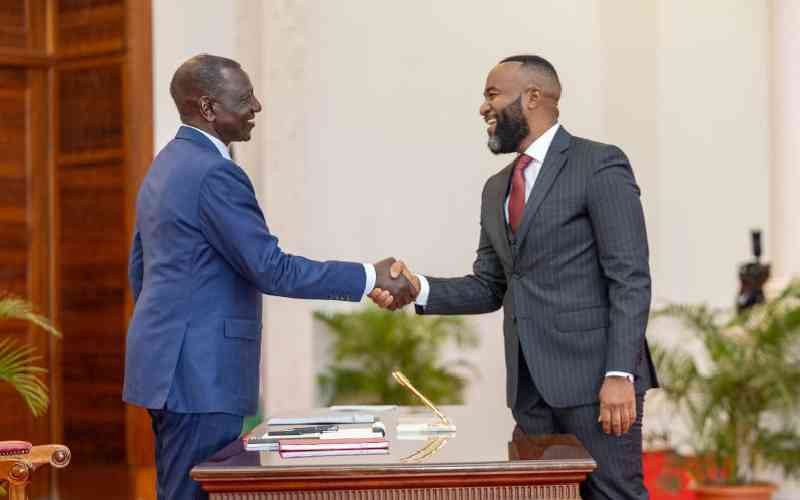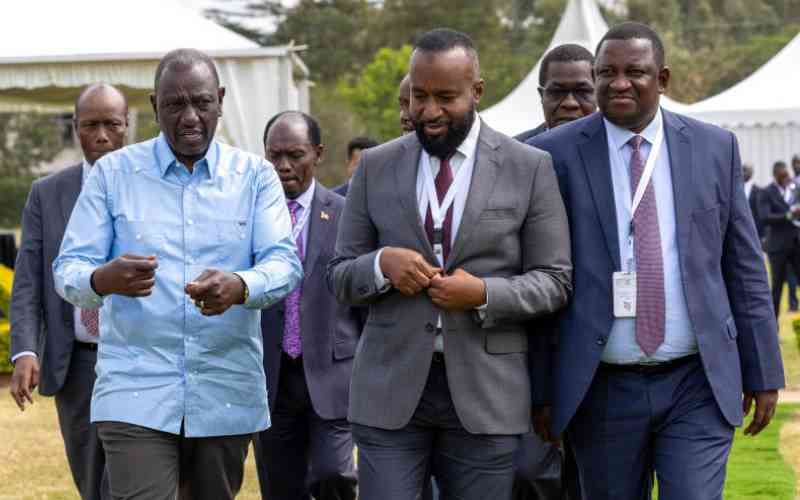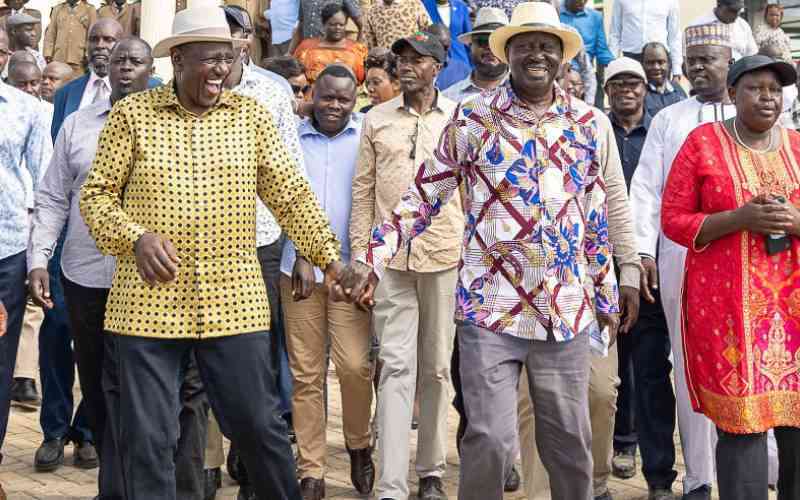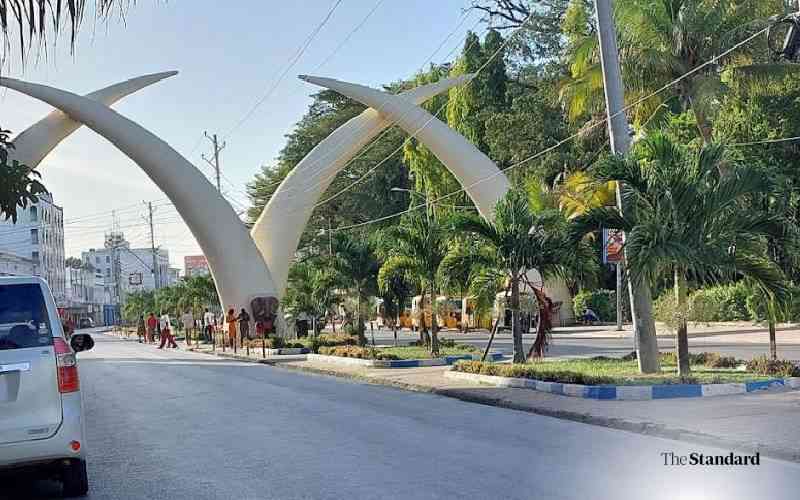From Raila loyalist to Ruto's point man: Joho's political shift unfolds at the coast - The Standard

The shifting sands of Coast politics are redefining old loyalties, with Mining Cabinet Secretary Hassan Joho now at the forefront of President William Ruto’s 2027 re-election campaign—while Nyali MP Mohamed Ali, a former Ruto ally, has emerged as one of the regime’s harshest critics.
Joho, who previously lambasted Ruto during the 2022 campaigns, is now backing his re-election bid alongside Mombasa Governor Abdulswamad Nassir, marking a striking departure from their past stance.
In contrast, Ali—also known as "Jicho Pevu"—has turned his guns on the very administration he backed. Most recently, he condemned Interior CS Kipchumba Murkomen’s controversial “shoot-to-kill” order.
"Security must not be at the cost of humanity. The shooting directive made by Onesimus Kipchumba Murkomen is a chilling endorsement of extrajudicial killings," said Ali in a social media post.
The MP, who has kept a low political profile for the past eight months, recently posted: “Hi, cousins, 8 months and still going strong,” in reference to Deputy President Rigathi Gachagua’s campaign slogan.
Ali also cried foul over the UDA’s botched Coast primaries, threatening to leave the ruling party, citing a plan to edge him out of the 2027 Mombasa gubernatorial race.
Meanwhile, Joho, who once pledged to seize Ruto’s Taveta farm if Raila won in 2022, is now urging Coastal communities to rally behind the president. In Taveta, he claimed the Coast region was not tribal and was a true definition of diversity in the country.
“Our concern here is how to tackle hunger, poverty, water, health, roads, inequality and land problems,” he noted.
He also branded Gachagua’s political wing a tribal outfit and dismissed its intentions at the Coast.
“President William Ruto and his deputy (Prof. Kithure Kindiki) have led the call for national unity, and I want to tell you today that it is what we will prioritise so that every Kenyan can feel part of this country,” Joho said, insisting the President has dismantled exclusionist politics.
During Eid celebrations at Treasury Square, in Mombasa, Raila hit out at Ruto and vowed that ODM will field a presidential candidate in 2027, putting Joho in an awkward political spot post.
This is after Joho threatened journalists for painting the country negatively and praised the broad-based government as a key to prosperity.

Political analysts observe that Joho's political evolution resembles that of Okonkwo in Chinua Achebe’s Things Fall Apart—a man desperate to break away from the shadow of his past. The former governor, who has described ODM leader Raila Odinga as his political father, now appears ready to sever those ties and back Ruto if it serves his post-2027 ambitions.
Stay informed. Subscribe to our newsletter
Pwani University don Hassan Mwakimako said Joho wants to be closer to power, and he is attacking the government's real and imaginary enemies to endear himself to Ruto.
“Joho has never been a defender of democracy. He does not want a political position; he wants to be a CS, and that is why he is singing praises for Ruto,” he argues.
Mwakimako says Joho might stick with Ruto even when ODM fields a presidential candidate in 2027, as announced by Raila, to protect his interests.
He notes that Joho’s recent positioning as a Coast kingpin is meant to show that he can move the region’s voting bloc to Ruto’s camp, which may be misconceived.
“Joho has relied largely on the upcountry votes in Mombasa, and it may not move with him to Ruto’s camp in case ODM fields a presidential candidate," said Mwakimako.
Unlike the other "ODM experts" who joined the government eight months ago, Joho is a staunch supporter of Ruto's policies, attacking journalists, Gen Zs and online critics of the Kenya Kwanza regime.
Others suggest that Joho’s pivot to Ruto is commercially motivated, especially after brushes with state agencies threatened his family’s shipping and logistics empire.
Pwani University lecturer Halim Shauri said Joho had no option but to sing Ruto’s praises, as the CS position was his golden opportunity after facing the tribulations in the first months of Ruto's rule.
“For Joho, the CS job under the broad-based government is a unique opportunity. UDA is the hand that feeds him, and he has to ensure that the pot has no holes. He is a big beneficiary," he said.
He said Joho, and other ODM politicians appointed to Ruto’s cabinet have undergone major transformations politically since they joined government.
“For Joho in particular, his dream has come true. He landed the job by chance after being a leading critic of the president, and he has to guard it,” said Prof Shauri.
The scholar, however, observed that Joho is not likely to jeopardise Raila or abandon him as the architect of the broad-based arrangement that benefited him.

Before he was appointed to Cabinet, Joho faced legal battles that threatened to cripple his family’s shipping and logistics business empire in Mombasa, Nairobi and South Sudan.
As a Cabinet Secretary, Joho now enjoys political and commercial stability. His family firm has resumed key operations, including in the over Sh5 billion grain handling facility.
Yet, critics say he has shown more interest in consolidating influence than service delivery, pointing to stalled projects like the Liwatoni Fish Complex and the Bandari Maritime Academy.
Mombasa lawyer Abubakar Yusuf warned that Ruto could miscalculate if he banks solely on Joho for Coastal votes. “If he does not fulfill his 2022 pledges, Ruto will get a shock of his political life,” he said.
Still, the Ruto-Raila alliance and Joho’s shift could shake up 2027 dynamics—if promises on jobs, land reforms, and Dongo Kundu’s economic prospects are delivered.
“This union between Ruto and Raila is focused on winning the 2027 polls. It makes it easier for President Ruto to get more votes in the Coast. The question is, will they succeed?” he posed.
Prof Mwakimako noted that Joho and Mvurya will bolster Ruto’s political agenda for the 2027 polls if they and the government perform.










